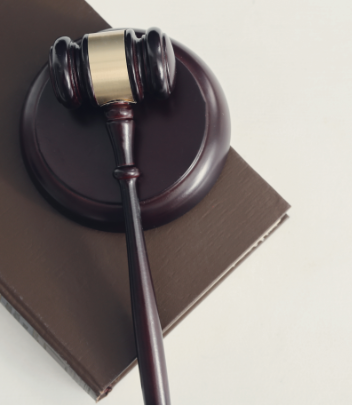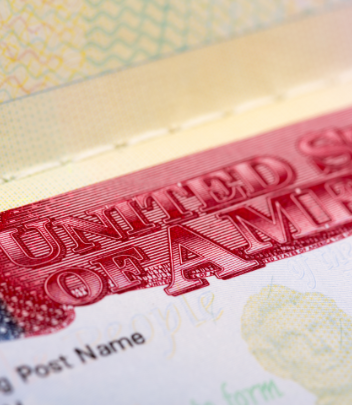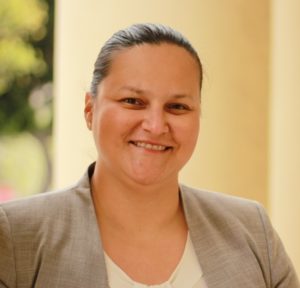DMV Hearing For DUI
DMV Hearing for DUI
If you are arrested for a DUI (driving under the influence) in California, you must attend two legal proceedings as a consequence. As well as criminal prosecution in the California courts, you will have to participate in a DMV hearing for the state’s Department of Motor Vehicles. If you are unfamiliar with these hearings, we answer the most common questions below for you and discuss why it’s essential to work with an experienced DUI lawyer.
What Is a DUI DMV Hearing in California?
The DMV administrative hearing is for the purpose of dealing with your driving privileges, which may be suspended as the result of a DUI. While the courts deal with criminal penalties, such as fines or incarceration, only the California DMV can suspend or revoke your license.
This hearing at the Office of Administrative Trials and Hearings is not a one-sided process. You can make a case during a DUI hearing that suspending or revoking your license is not justified. You are not obligated to attend a DMV hearing, but it is recommended that you do so. It is part of due process related to your DUI incident.
DMV Administrative Hearings vs. Criminal Court Trials for a DUI Arrest
A criminal court trial is very different from a DMV hearing. The former determines if you were in violation of California’s vehicle code, such as driving under the influence or driving with a blood alcohol content (BAC) that was over the legal limit of 0.08%. If another party was injured as a result of your driving under the influence, that will also be addressed in the criminal court trial.
The court proceeding also determines your consequences if you are found guilty and have a DUI conviction. As mentioned above, you may have to pay fines or serve time in jail or prison. You might also have to attend DUI school or pay restitution to someone you injured while driving under the influence.
In contrast, a DMV hearing is strictly about your driving privileges and whether or not you may continue to hold a driver’s license. It also pertains to the circumstances of your arrest. The following points are discussed:
- Did you take a blood, breath, or urine test to determine the amount of alcohol in your body?
- Did you refuse to take a blood, breath or urine test?
- Were you informed that if you refused to take a blood, breath, or urine test, you might lose your driving privileges?
- Did the law enforcement officer who stopped you have reasonable cause to believe you were in violation of the California Vehicle Code pertaining to driving under the influence?
- Were you placed under lawful arrest?
- Were you detained while on DUI probation?
- Were you operating a motor vehicle at a time you had 0.08% or more by weight of alcohol in your blood?
How Can I Win at My DUI DMV Hearing?
While you may represent yourself at your hearing, it is better to be represented by a DUI attorney who can make sure your rights are protected, answer any questions about the process, and make sure every strategy is employed to retain your license.
To win at your DMV administrative hearing, you must come out ahead in one of three areas:
- Reasonable cause of vehicle code violation(s)
- Lawful arrest
- Blood alcohol content
Within those broad categories, there are ways to win at your hearing, such as (but not limited to):
- You were not at or over a 0.08% blood alcohol content when you were driving.
- Proper procedure was not followed with breath or blood tests.
- The officer was not properly trained or qualified to administer your breath test.
- The officer had no right to pull you over.
- There were mistakes in the police report or the Officer’s Statement DMV form.
It’s generally not easy to win this type of hearing, and less than 10 percent of people do. Working with a DUI lawyer can make sure you leave no stone unturned to try to keep your license.
What Happens If I Lose My DMV DUI Hearing?
Occasionally, there are circumstances that allow you to keep your driver’s license even if you lose your DMV hearing. Plea bargains or winning at your court trial, for example, might persuade the DMV to restore your driving privileges. Typically, though, you can expect some sort of license suspension, based on your history of DUIs as outlined below.
Driver’s license suspension for first-offense DUI
You will not be able to drive for six to 10 months after you lose your hearing. After a month, you may be able to convert the suspension to a restricted license that allows you to drive to and from work and DUI school. To do this, you must:
- Enroll in California DUI school
- Submit an SR-22 insurance form
- Pay a reinstatement fee of $125
If you refused to take a blood alcohol test, or if you injured another party during your DUI, the DMV may suspend your license for a year.
In some first offense cases, you can forgo restricted driving and drive without limitation if you install an ID (ignition interlock device) in your vehicle for four months, which requires you to give a breath sample before the vehicle will start.
Driver’s license suspension for second-offense DUI
Second-offense DUI incidents usually result in a two-year license suspension. You may be able to convert your suspension to a restriction after one year if you meet the conditions listed above. In some cases, you may be able to move to a restricted license within only 90 days if:
- The DUI involved alcohol only, no drugs
- There were no aggravating factors, like a high BAC or traffic accident
If someone was injured in your DUI, your license may be suspended for three years.
If you are lucky, you may get to drive without limitation if you install an ignition interlock
Driver’s license suspension for third-offense DUI
In this case, your license will be suspended for three years, with the opportunity to convert to a restricted license after one year, as outlined above with other offenses.
If you caused an injury with your DUI, your license is subject to suspension for five years.
Like lower level offenders, you may be able to drive without limitation if you install an ignition interlock device in your car, explained above, for one year.
Driver’s license suspension for fourth and subsequent DUI cases
Fourth-time DUI offenders can lose their license for four years. Like other lesser offenders (see above), you may be able to convert your license to a restricted one after a year.
If you are fortunate, you may be able to drive without limitation by installing an ignition interlock device in your vehicle for a set amount of time.
Underage DUI cases
California has a zero tolerance policy for drivers under 21 involved in DUIs, even with as little as 0.01% BAC. You will lose your license for a year, and for up to three years if you refused a blood or breath test, especially if you have any prior DUIs.
Out-of-state drivers
If you are an out-of-state driver involved in a DUI in California, you may have your attorney represent you at your DMV administrative hearing, in person or on the phone. Because of reciprocity with most other states, you will likely lose your driving privileges in your home state as well.
Appealing your DMV DUI hearing decision
You are permitted to appeal the decision of your DUI hearing at the DMV. You can request a departmental review via the DMV itself for a fee of $120 or file an appeal with the California Superior Court. The latter is definitely a much more expensive option and one you should consult an attorney for.
What a DMV Officer Looks for in a Hearing
In case you’re wondering what a DMV officer looks for in a hearing, here is what they will consider:
- Did the law enforcement officer have probable cause?
- Were you lawfully arrested?
- Did a chemical test reveal a blood alcohol content of 0.08% or higher?
- If you refused a test, did the arresting officer warn you about losing your license as a consequence?
In some cases, if there are questions about the incident or arrest, the officer involved will be subpoenaed.
Ezquerro Is a Dedicated San Diego DUI
Lawyer Here to Help You If You Are in Need!
You don’t have to go to your DMV administrative hearing alone! Ezquerro is an experienced San Diego area DUI attorney who can assist you before and during your hearing for the best chance of a positive outcome. Call our offices today at +1 619-485-8150, or get in touch online to set up a consultation as soon as possible.

Driving Under the Influence
Business Law & Social Offence

Violent Crimes
Family Law

Theft
Civil Disopedience & Social Offnce

loading ...
© COPYRIGHTS 2023 ALL RIGHTS RESERVED | PRIVACY POLICY AND TERMS AND CONDITIONS


